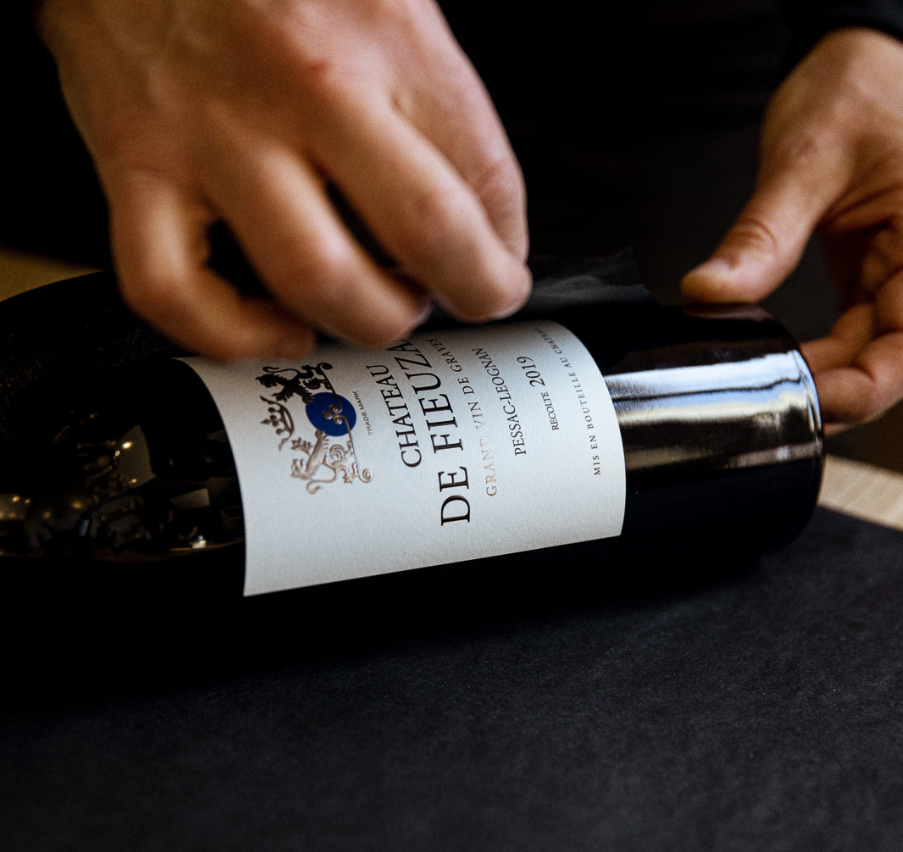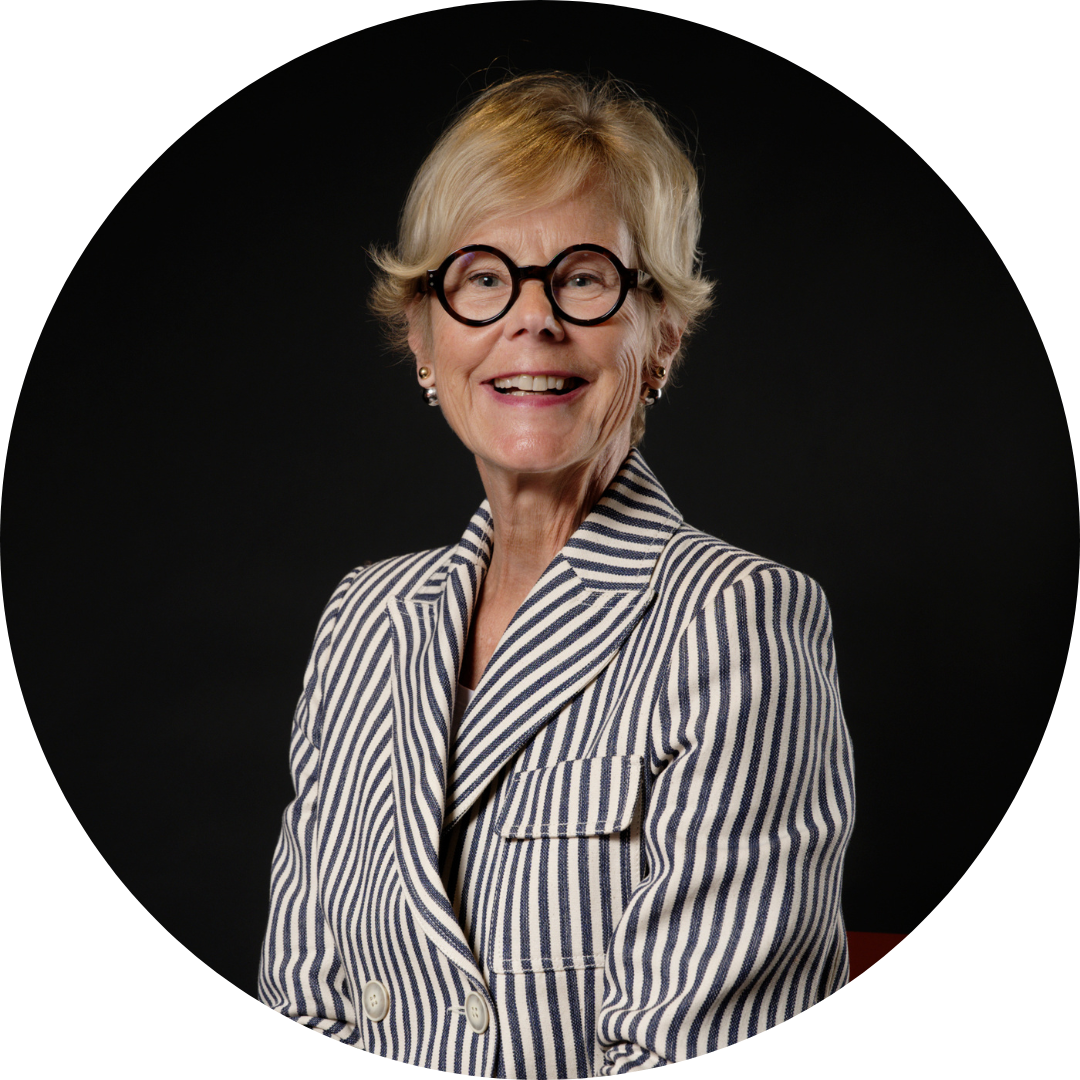Stephen Carrier
General Manager
Château de Fieuzal
Grand Cru Classé de Graves, Pessac Léognan
Gerda: Tell us about you…
Stephen Carrier: I am from Champagne, both my parents are vine-growers. Vine has always been part of my life. Initially, it wasn’t always a pleasure to walk through the vine at the age of 6, but it became one over time! Having developed a passion, I decided that vine-growing would be at the heart of my career. I am a leader who likes to help, and I have a true passion for wine, particularly for the vine.
I am deeply grateful to the people who helped me, including Jean-Michel Cazes. Very sadly, he is no longer with us. Thanks to him, I was able to develop my career in Bordeaux. At my level, I also try to help others, which gives me great satisfaction.
G: What are the main challenges you personally face in the practice of your work?
SC: My profession has specificities, of which the most important is viticulture. It’s a long-term job; the choices made today must be the right ones for the decades to come. For example, the choice of a grape variety, a specific clone, as well as the location in a plot, are decisive decisions for an entire professional career. It’s a real challenge, especially since the current restrictions have evolved considerably, whether in terms of regulations, climate, or even consumer expectations.
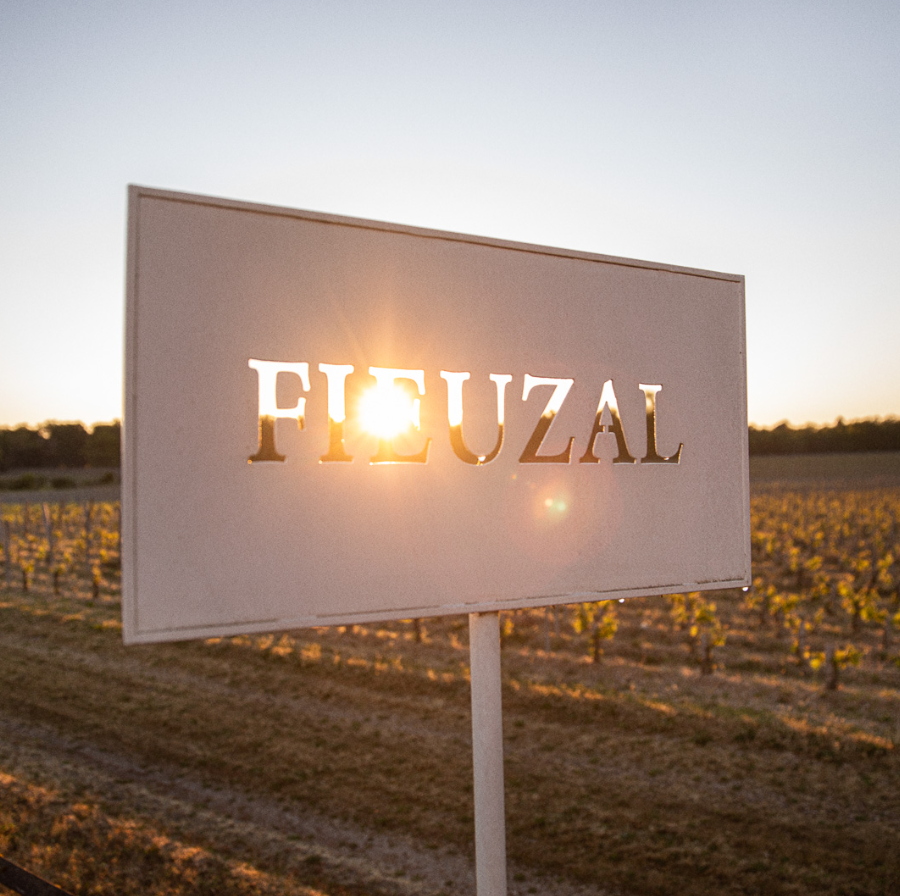
Harvests 2023
G: Can you say a few words about the 2023 vintage?
SC: This vintage fully met our expectations and turned out to be the longest one I’ve had the opportunity to vinify. The harvest began on August 28 with the white grapes and ended on October 11 with a last plot of Cabernet Sauvignon. Contrary to the forecasts of a few months earlier, nature was generous; the whites, with an exceptional yield, show a rare freshness, and the first harvested Merlots are of surprising finesse, while the Cabernet Sauvignons are characterized by a quality rarely matched. We plan to finish the free run by mid-November, which will allow me to have a more refined perspective on the quality of this new cuvée.
The brand Fieuzal today and tomorrow
Gerda: What positioning do you want for your brand?
SC: I find talking about a brand a bit pretentious. I want the wine to be drunk and for the brand to maintain its conviviality. This is part of my DNA and my daily way of life. I don’t consider a Grand Cru as a luxury product, because luxury is something rare, yet we can produce every year.
I want consumers to have confidence in Fieuzal, and to know that this wine comes from an authentic place, with authentic people. Fieuzal is like a family, and I want the world of Fieuzal to evoke sympathy and reassurance.
It’s important to respect distribution networks, especially today. They are all very efficient. The essential thing is that our wines are drunk. When someone goes to a restaurant in Bordeaux, Oslo, Amsterdam, or New York and sees Fieuzal on the menu, they must be able to identify the owner and the winemaker. A beautiful bottle should inspire the desire to share and create a warm atmosphere. It’s more than a brand because it’s the vector of a unique experience.
G: How do your wines stand out and are unique?
SC: Fieuzal is unique because it was born in a place where no other wine has ever been produced. It is led by people who are not from Bordeaux: an Irish couple (Brenda and Lochlann Quinn) who have owned it for almost 25 years. It stands out for its distinctive management and the team that composes it.
It’s a place that’s quite difficult to understand. For my part, it took me time because I arrived there with the knowledge of a 40-year-old man. I learned to discover the terroir, and over the years we have been producing wines that more expressively showcase this place, favoring more elegance with less extraction. I have opened up and tried to be less ‘narrow-minded.’ I listen more and have surrounded myself with people who help me in this approach to try to best highlight this unique place.
G: Which of your recent accomplishments would you like to share with your customers?
SC: I am working on a social project called « Fieuzal 2030 ».
We have replanted a large part of the vineyard and thanks to this, we produced more first wine than second wine in 2022. This is a sign that the vineyard is established, and I am convinced that our winemaking choices in the winery are good. This winery, in service since 2011, is a fantastic tool. I don’t need anything else, but it is important to note that we are located in Léognan, which is today a suburb of Bordeaux and will be even more so in 10 years. It is becoming increasingly difficult to find qualified personnel. Indeed, the terroir is essential, but without staff to plant the vines and work this terroir, we face a major problem. People are the key to success. When comparing Pauillac and Léognan, for example, the economic conditions are quite distinct. That’s why, together with Daragh Quinn (one of the owner’s sons), we initiated this project ‘Fieuzal 2030’ to rethink this place and create a more social environment, by building housing to attract staff. I think that people play a crucial role in the making of a wine.
G: Why have you chosen not to be certified?
SC: We made this decision because I am not convinced that under the climate of Léognan, we can produce a quality harvest every year. That’s my belief. However, we have replanted hedges and introduced animals, including sheep, a chicken coop, and beehives. Today, everyone is doing it, but Jean-Michel Cazes inspired me to go further as he did with the village of Bages. Now that we have finished replanting the vineyard, the winery is done, and I have a high-performing team, I have a dream, even though it’s not my home, to transform Fieuzal into a real farm. We are in the Landes, surrounded by woods. There is still an ecosystem, and we must protect it and to further enhance its value.
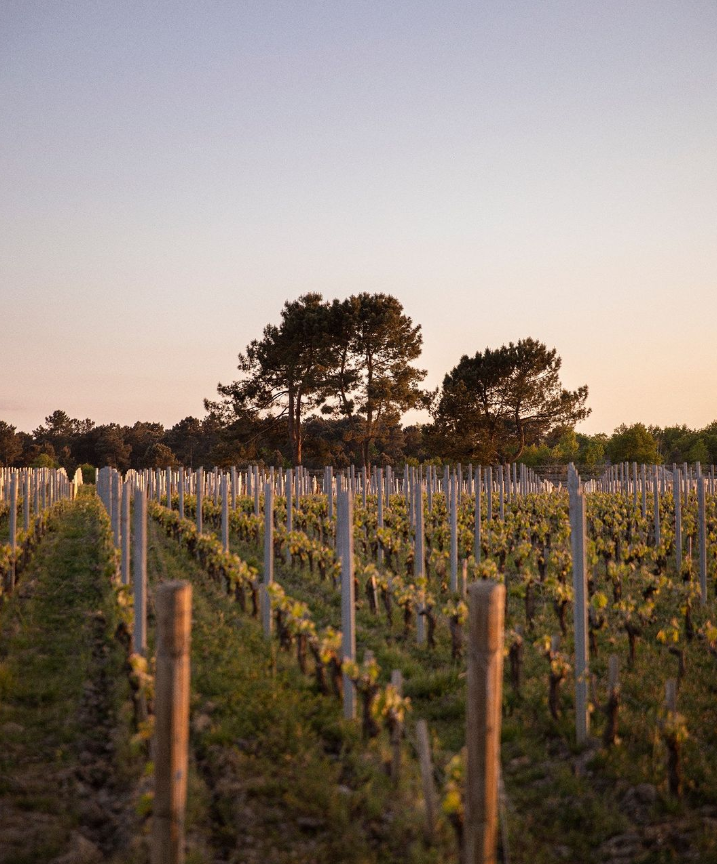
The business
G: What are your priorities in terms of business development?
SC: We wish to establish Fieuzal distribution in as many countries as possible. In association, of course, with La Place de Bordeaux, whose capillarity is well proven. This marketing system is extraordinary in its diversity and its capacity to transform, especially in the current era. It is necessary to know how to work with it. I believe in something that I have observed with cognacs and champagnes: if the wine is well sold on the domestic market, it will one day be sold for export. I prefer that our distribution be solid in France to rebound one day for export, which can be much more volatile for some markets. We are already well-structured, but there is still work to be done.
Currently, we are well-distributed in France, Benelux, and Switzerland. We are currently developing the United Kingdom. As for other export markets, they depend on the global economy. Sales in the United States were very average this year, compared to the 2019 campaign. Asia is not yet a major market for Fieuzal, but if Roland Coiffe manages to sell 50 cases there, maybe one day there will be 150 cases. The most important thing is to produce quality and set the right price. If everything sells during a primeurs campaign, it means that the release price was right and that the market has confidence in us. Regarding distribution, I do not presume to tell the negociants where they should place our wines. We are in a different world at Fieuzal.
However, La Place de Bordeaux has extraordinary power and is a system that costs nothing to the estates. I come from the champagne sector and have worked for LVMH, so I know how much a sales force can cost. We at the estate do not have the means to have our own sales force, and this also applies to the vast majority of the 350 grands crus. Therefore, it is essential to take care of this remarkable tool. One must have worked elsewhere to understand how much marketing can be expensive. Our main mission is to make the best choices to produce the highest quality possible. I even find it very good that the Place sells wines from elsewhere. This allows negociants to have broader portfolios. If we can’t sell our wines, it means that we are not good. I am very happy when a trader includes our wine on his price list because it means that he will fight to sell it. All the foreign wines sold by the Place are a superb showcase for Bordeaux. What pleases me most about Bordeaux compared to 15 years ago, when I arrived, is that the trade buys by opportunity and not just to please, as may have been the case. The trader today makes real decisions and has an educational role in the estate.
G: What sales support materials are available to distributors to promote your wines?
SC: As you will have understood, I place a lot of importance on human relationships. We uniquely receive guests at the estate. I have traveled, and service is very important. When a trader comes with their clients to Fieuzal, they are received like nowhere else. We are available, we travel, and we try to optimize all our missions outside. We are also attentive to the traders, eager to know how our wines are perceived and everything we can do to improve.
G: Which vintage should the market be interested in? and why?
SC: The 2014 vintage is the real Bordeaux for me; it has a lot of finesse and elegance, and the price is perfect. It’s a vintage that looks like what we are doing today and, in my opinion, perfectly shows the terroir of Fieuzal.
Thomas Duclos has been accompanying us since the 2019 vintage in our winemaking choices. Like everyone, the main objective is to harvest at the maturity that we think is most suitable for the style of wine we want to produce. That’s what I was saying in the introduction: beyond experience, I try to adapt to the terroir. A much softer and longer extraction, with wines even cleaner before bottling, that’s the overall idea of our work and our daily actions on our wines. I am much less obsessed with the composition of each grape variety but much more with the overall balance of our blend. Thomas’s arrival was quite disturbing for me. I had to be ready to listen, as he brought new concepts. My education was done with a lot of maturity and a lot of extraction.
In our terroir of gravel and fine gravel that does not retain water, it is essential not to push the grapes too far, and when it’s time to harvest, one must act immediately. Thomas is an excellent professional, he’s part of the team, and there is a real exchange of ideas and know-how between us.
I am very lucky with the owners because I have a strong character. My work experience with Jean-Michel Cazes at Lynch Bages taught me a lot. My time in the United States trained me in the management of an estate and what it means to work for a big company. I have the freedom to manage Fieuzal as if it were my own. Lochlann & Brenda Quinn are rare people because they have understood that investing in the vineyard can only be done in the long term, which is essential in my eyes. One of their six children, Daragh, has been managing for a few years now.
G: Do you have any upcoming commercial releases or market launches?
SC: I mainly try to discern the moments when traders are receptive to receiving offers. However, life is made of cycles, and commercial dynamics should return within a period that I would not dare estimate today. It is in these moments that it is important to have involved owners who understand the business.
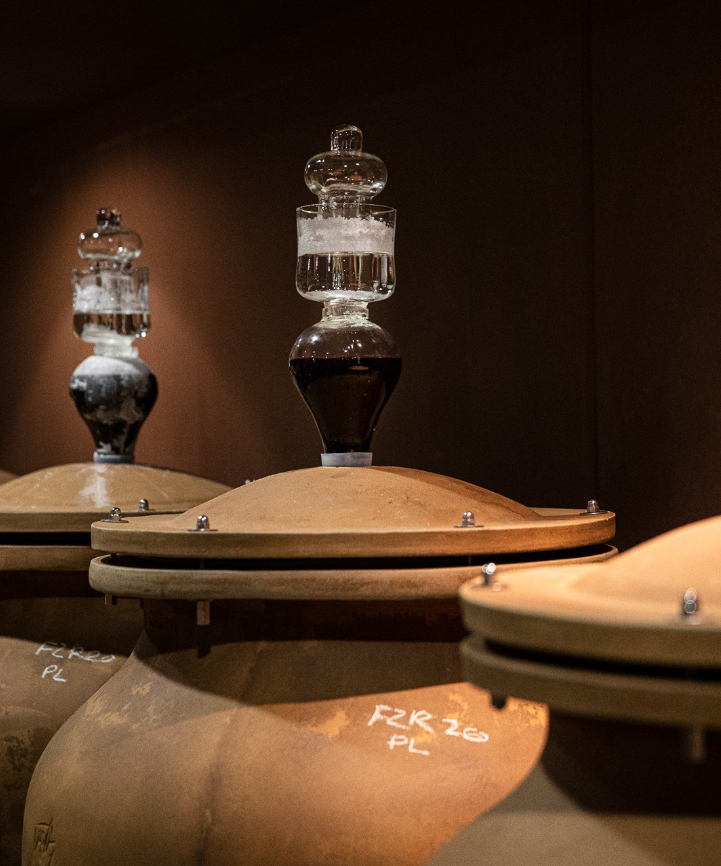
Favorite bottle of Stephen Carrier
G: If you had one bottle of your heart?
SC: Without hesitation, it’s Lynch Bages, and I am very grateful to Jean-Michel Cazes. He is a great man who introduced me to Bordeaux and allowed me to work here (Stephen was the technical director of Châteaux Lynch Bages and Ormes de Pez from 2001 to 2005). My favorite bottle is Lynch Bages 1986 because I drank it with him, and it reminds me of an unforgettable moment. I am not very sentimental, but I am deeply affected by his passing. Beyond the fact that it’s an exceptional bottle, Lynch Bages is the estate I appreciate the most in Bordeaux.
The tasted wines
Château de Fieuzal Blanc 2016: This vintage is evolving very well. It has nice tension and good body. It’s a specific year for Stephen, and this vintage includes a significant proportion of Sémillon. ‘When I arrived at Fieuzal, I had a slightly more contemporary approach, with a focus on Sauvignon Blanc. Bordeaux is also and especially a region renowned for Sémillon. In 2016, Fieuzal Blanc is composed of 50% Sauvignon and 50% Sémillon. Before 2016, the whites of Fieuzal had much more Sauvignon. Sémillon can age remarkably well, as evidenced by Domaine de Chevalier, for example. The 2016 vintage is the turning point where I become a little more mature.’ It presents aromas of Sauternes with orange peel and even clove.
Château de Fieuzal Rouge 2019: This blend is marked by a much higher proportion of Merlot than in previous vintages – it is distinguished by a singular elegance in this vintage of great maturity – the tannins are fine and already integrated, with still some notes from aging, but a purity that wonderfully characterizes the Terroir of Fieuzal. It is one of those vintages like 2009 that will be enjoyable to drink at all times.
Gerda BEZIADE has an incredible passion for wine, and possesses a perfect knowledge of Bordeaux acquired within prestigious wine merchants for 25 years. Gerda joins Roland Coiffe & Associés in order to bring you through “Inside La PLACE” more information about the estate we sell.


